Rediff Business Desk
Pakistan has more economic freedom than India. India's economic freedom score is 53.8, making its economy the 124th freest economy in the world, while Pakistan is ranked at 117 with a score of 55.2, according to the 16th Index of Economic Freedom jointly released by The Heritage Foundation and The Wall Street Journal.
India's score is 0.6 point lower than last year as a result of declines in freedom from corruption, business freedom, and monetary freedom. India is ranked 24th out of 41 countries in the Asia Pacific region, and its overall score is below the world average, the Index said.
The overall freedom to start, operate, and close a business remains restricted by India's regulatory environment.
Starting a business takes an average of 30 days, compared to the world average of 35 days. Obtaining a business license requires more than the world average of 18 procedures and 218 days, the study states.
India's tax rates and inflation has been relatively high, inflation averaging 7.7 per cent between 2006 and 2008.
Foreign investors generally receive national treatment. Liberalisation and modernisation have allowed more private banks to compete, but state-owned institutions continue to dominate the banking sector and capital markets, the study points out.
The legal system imposes a number of restrictions on the transfer of land, and titling problems can make buying and selling difficult.
Corruption is perceived as significant. India ranks 85th out of 179 countries in Transparency International's Corruption Perceptions Index for 2008.
India GDP (PPP):
$3.4 trillion
7.1% growth
8.9% 5-year compound annual growth
$2,972 per capita
Click NEXT to check out the world's freest economies. . .
Pakistan too beats India in economic freedom
Image: The least free nations include Solomon Islands.The level of economic freedom in the world dipped slightly in 2009. The average economic freedom score for the 2010 Index is 59.4 (on a scale in which 100 represents the ideal), down 0.1 point from 2009.
The 2010 Index of Economic Freedom covers 183 countries around the world, ranking 179 of them with an economic freedom score based on 10 measures of economic openness, regulatory efficiency, the rule of law, and competitiveness.
The basic principles of economic freedom emphasised in the Index are individual empowerment, equitable treatment, and the promotion of competition.
The 2010 Index provides strong evidence that economic freedom has far- reaching positive impacts on various aspects of human development. Economic freedom correlates with poverty reduction, a variety of desirable social indicators, democratic governance, and environmental sustainability.
The least free nations in the list include: Solomon Islands (170), Turkmenistan (171) D.R. of Congo (172), Libya (173), Venezuela (174), Burma (175), Eritrea (176), Cuba (177), Zimbabwe (178) and North Korea (179).
Of the 179 countries graded in this year's Index, only seven scored 80 or higher -- the rating necessary to qualify as having a "free" economy.
Overall 15 countries changed categories of economic freedom in this year's Index, including the UnitedStates, dropping from "free" to "mostly free." Check NEXT for the top ten countries in terms of economic freedom. . .
Pakistan too beats India in economic freedom
Image: Hong Kong no.1 in economic freedom.Photographs: Reuters
1. Hong Kong -- Score: 89.7
Hong Kong's economic freedom score is 89.7, making its economy the freest in the 2010 Index.
Its score is 0.3 point lower than last year, reflecting increases in business and labor freedom that were offset by modest declines in several factors, particularly trade freedom, monetary freedom, and freedom from corruption, states the 16th annual Index of Economic Freedom, released by The Heritage Foundation and The Wall Street Journal.
Starting a business takes six days, compared to the world average of 35 days, and obtaining necessary licenses takes less than the world average of 218 days.
Hong Kong's effective tax rates are among the lowest in the world. Individuals are taxed either progressively, between 2 percent and 17 per cent on income adjusted for deductions and allowances, or at a flat 15 per cent of gross income, depending on which liability is lower, states the study.
Inflation has been relatively low, averaging 3.5 per cent between 2006 and 2008.
Foreign capital receives domestic treatment, and foreign investment is strongly encouraged.
Hong Kong is a global financial centre with a regulatory and legal environment focused on enforcing prudent minimum standards and transparency.
Hong Kong's legal system is based on common law, and its constitution strongly supports private property and freedom of exchange.
Corruption is perceived as minimal. Hong Kong ranks 12th out of 179 countries in Transparency International's Corruption Perceptions Index for 2008. Giving or accepting a bribe is a criminal act. Labour regulations are flexible.
GDP (PPP):
$306.5 billion
2.4% growth
5.7% 5-year compound annual growth
$43,924 per capita
Pakistan too beats India in economic freedom
Image: Singapore: 2nd freest in the 2010 Index.2. Singapore -- Score: 86.1
Singapore's economic freedom score is 86.1, making its economy the 2nd freest in the 2010 Index.Its score has declined by one point over the past year, due primarily to lower ratings in monetary freedom and investment freedom.
Starting a business takes only three days. Obtaining a business license takes much less than the world average of 18 procedures and 218 days.
Flexibility and openness have been the foundation of Singapore's transformation into one of the most competitive and prosperous economies in the world.
An efficient regulatory environment encourages vibrant entrepreneurial activity.
Commercial operations are handled with transparency and speed, and corruption is perceived to be almost nonexistent.
Singapore's very competitive tax regime and highly flexible labor market encourage investment, attracting global companies and enhancing innovation.
Inflation has been low, averaging 4.9 per cent between 2006 and 2008.
Foreign and domestic businesses are treated equally, and nearly all sectors are open to 100 per cent foreign ownership.
The court system is efficient and protects private property. Corruption is perceived as almost nonexistent.
GDP (PPP):
$238.5 billion
1.1% growth
6.1% 5-year compound annual growth
$49,284 per capita
Pakistan too beats India in economic freedom
Image: Corruption is minimal in Australia.3. Australia -- Score: 82.6
Sound macroeconomic policies and well-implemented structural reforms have allowed the Australian economy to weather the recent global financial and economic crisis better than many other advanced economies.
Facilitated by robust supervision and sound regulation, Australia's banks have coped well with the financial turmoil.
Starting a business takes two days and obtaining a business license requires less than the global average of 18 procedures.
Australia has a high income tax rate and a moderately high corporate tax rate.
Inflation has been moderate, averaging 3.8 per cent between 2006 and 2008.
Foreign and domestic investors receive equal treatment, but foreign investments may be screened.
Property rights are well protected. Corruption is perceived as minimal. Australia ranks 9th out of 179 countries in Transparency International's Corruption Perceptions Index for 2008.
Highly flexible employment regulations enhance employment and productivity growth.
GDP (PPP):
$762.6 billion
3.7% growth
2.9% 5-year compound annual growth
$35,677 per capita
Pakistan too beats India in economic freedom
Image: The New Zealand Stock Exchange in Wellington.Photographs: Reuters
4. New Zealand -- Score: 82.1
New Zealand continues to be a global leader in economic freedom. The economy has an impressive record of market reforms and benefits from its openness to global trade and investment
New Zealand's efficient legal and regulatory environment strongly supports entrepreneurial activity.
Starting a business is very easy and straightforward, taking only one day in comparison to the world average. Obtaining a business license requires much less than the world average.
New Zealand has a relatively high income tax and a moderate corporate tax. Inflation has been relatively low, averaging 3.5 per cent between 2006 and 2008.
New Zealand encourages foreign investment in most sectors. Private property is well protected.
Corruption is perceived as almost nonexistent. New Zealand is ranked 1st out of 179 countries in Transparency International's Corruption Perceptions Index for 2008.
New Zealand's labour regulations are flexible.
GDP (PPP):
$115.4 billion
-1.6% growth
2.0% 5-year compound annual growth
$27,029 per capita
Pakistan too beats India in economic freedom
Image: A 60-metre high Ferris stands close to Belfast's City Hall in Northern Ireland.Photographs: Jonathan Saul/Reuters
5. Ireland -- Score: 81.3
The Irish economy was able to maintain its status as freest economy in the Europe region in the 2010 Index.
Ireland's overall levels of economic freedom remain high, sustained by such institutional strengths as strong protection of property rights, a low level of corruption, efficient business regulations, and competitive tax rates.
Starting a business takes an average of 13 days and obtaining a business license requires less than the world average of 18 procedures and 218 days.
Inflation has been relatively low, averaging 3.0 per cent between 2006 and 2008
Ireland welcomes foreign investment, and domestic and foreign firms incorporated in Ireland receive equal treatment.
However, Ireland has suffered severe economic and financial challenges as a result of the recent financial and banking crisis.
An efficient, non-discriminatory legal system is accessible to foreign investors to protect and facilitate acquisition and disposition of all property rights. Labour regulations are flexible.
Corruption is perceived as minimal. Ireland ranks 16th out of 179 countries in Transparency International's Corruption Perceptions Index for 2008.
Pakistan too beats India in economic freedom
Image: Switzerland, world's leading financial hub.Photographs: Reuters.
6. Switzerland -- Score: 81.1
Openness to global trade and investment has enabled Switzerland to become one of the world's most competitive and flexible economies.
Despite some stress in the financial system, Switzerland has emerged from the global economic turmoil relatively unscathed.
Starting a business takes 20 days and obtaining a business license takes less than the world average of 18 procedures and 218 days.
Taxation is more burdensome at the cantonal levels than it is at the federal level.
Inflation has been very low, averaging 1.9 per cent between 2006 and 2008.
Foreign investment receives national treatment, and most sectors are open to private investment.
Switzerland is a leading financial centre with highly developed and well-regulated institutions.
Switzerland has one of the world's best protection regimes for both foreign and domestic holders of intellectual property. Switzerland's labor regulations are relatively flexible.
Corruption is perceived as almost nonexistent. Switzerland ranks 5th out of 179 countries in Transparency International's Corruption Perceptions Index for 2008.
Pakistan too beats India in economic freedom
Image: Canada performs particularly well in business freedom7. Canada -- Score: 80.4
Scoring high in many of the 10 economic freedoms, Canada performs particularly well in business freedom, financial freedom, property rights, and freedom from corruption.
Canada's economic freedom trails the world average only in government spending.
Starting a business takes an average of five days, compared to the world average of 35 days. Obtaining a business license requires less than the world average of 18 procedures and 218 days. Canada has moderate tax rates.
Inflation has been low, averaging 2.3 per cent between 2006 and 2008.
Canada treats foreign and domestic capital equally in almost all situations.
Canada's financial system provides many options for businesses and competitive services for investors.
The judiciary is independent, and judges and civil servants are generally honest.
Canada ranks 9th out of 179 countries in Transparency International's Corruption Perceptions Index for 2008.
Flexible labour regulations enhance employment and productivity growth.
GDP (PPP):
$1.2 trillion
0.4% growth
2.3% 5-year compound annual growth
$36,444 per capita
Pakistan too beats India in economic freedom
Image: New York Stock Exchange.Photographs: Reuters.
8. United States -- Score: 78.0
The United States scores 2.7 points lower than last year, reflecting a drop in financial freedom, monetary freedom, and property rights.
The US government's interventionist responses to the financial and economic crisis that began in 2008 have significantly undermined economic freedom and long-term prospects for economic growth. Economic freedom has declined in seven of the 10 categories measured in the Index.
Starting a business takes six days and and obtaining a business license takes less than the world average.
The US tax rates are burdensome. Inflation has been relatively low, averaging 3.5 per cent between 2006 and 2008.
Foreign and domestic enterprises are legally equal, and foreign investments face federal screening only if perceived as a potential threat to national security.
Foreign investment in banking, mining, defense contracting, certain energy-related industries, fishing, shipping, communications, and aviation is restricted.
The US financial sector has undergone drastic changes since the sub-prime mortgage crisis began in mid-2007, substantially reducing economic freedom.
Inflation has been relatively low, averaging 3.5 per cent between 2006 and 2008.
A well-developed licensing system protects patents, trademarks, and copyrights, and laws protecting intellectual property rights are strictly enforced.
Corruption is perceived as minimal. The US ranks 18th out of 179 countries in Transparency International's Corruption Perceptions Index for 2008.
GDP (PPP):
$14.2 trillion
1.1% growth
2.2% 5-year compound annual growth
$46,716 per capita
Pakistan too beats India in economic freedom
Image: Denmark's financial system is competitive.9. Denmark -- Score: 77.9
Denmark's economic freedom score is 77.9, making its economy the 9th freest in the 2010 Index.Its overall score is 1.7 points lower than last year, due mainly to reduced scores in monetary freedom, property rights, and labour freedom.
Starting a business takes an average of six days, compared to the world average of 35 days. Obtaining a business license requires much less than the world average of 18 procedures and 218 days.
Denmark has a very high income tax rate and a moderate corporate tax rate.
Inflation has been relatively low, averaging 2.9 per cent between 2006 and 2008.
Denmark's financial system is competitive, though the two largest banks account for about 75 per cent of assets.
The judiciary is independent and generally fair and efficient. Commercial and bankruptcy laws are consistently applied, and secured interests in property are recognized and enforced.
Denmark (along with two other countries) is ranked 1st out of 179 countries in Transparency International's Corruption Perceptions Index for 2008 for the second year in a row.
GDP (PPP):
$201.2 billion
-1.1% growth
1.6% 5-year compound annual growth
$36,607 per capita
Pakistan too beats India in economic freedom
Image: Chile's financial system is stable.10. Chile -- Score: 77.2
Chile's economic freedom score is 77.2, making its economy the 10th freest in the 2010 Index.Its overall score is 1.1 points lower than last year, reflecting small declines in six of the 10 economic freedoms. Chile enjoys the highest degree of economic freedom in the South and Central America/Caribbean region.
Openness to global trade and investment and a dynamic private sector have facilitated steady economic growth. Chile has pursued free trade agreements with countries around the world.
Chile trails behind other comparable economies in business freedom, fiscal freedom, and labor freedom. Income taxes on individuals remain burdensome. Although overall regulatory licensing is easy, bankruptcy procedures remain cumbersome and costly.
Starting a business takes an average of 27 days, compared to the world average of 35 days. Obtaining a business license takes the world average of 18 procedures and less than the world average of 218 days.
Inflation has been high, averaging 7.2 per cent between 2006 and 2008.
Foreign and domestic investments generally receive equal treatment. Chile's financial system is among the world's most stable and developed.
Private property is well protected. Contracts are secure, and courts are transparent and efficient.
Corruption is perceived as minimal. Chile ranks 23rd out of 179 countries in Transparency International's Corruption Perceptions Index for 2008.
GDP (PPP):
$242.4 billion
3.2% growth
4.5% 5-year compound annual growth
$14,465 per capita

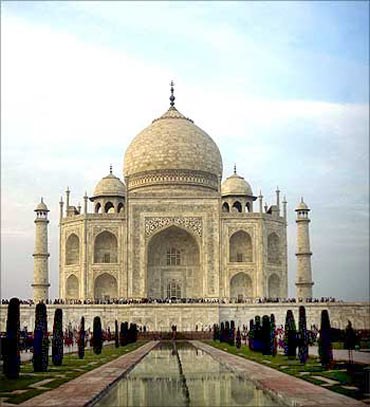
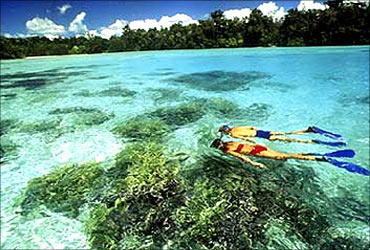
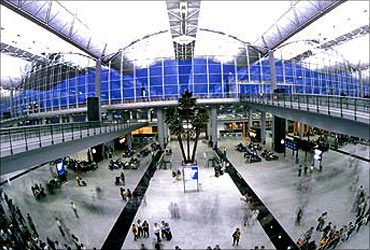
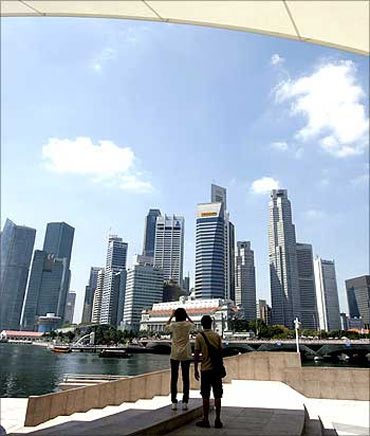
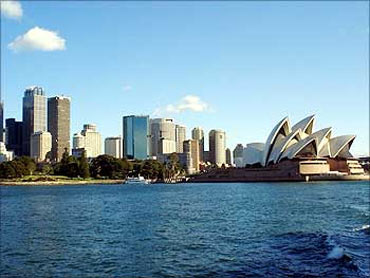
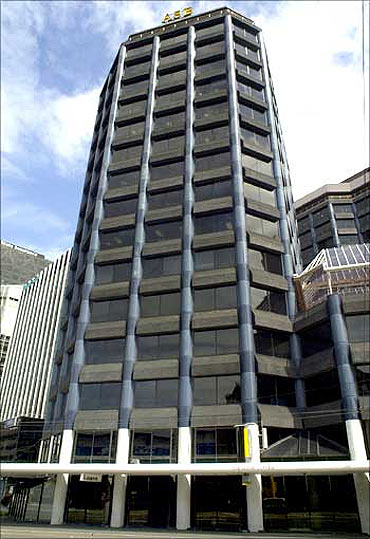
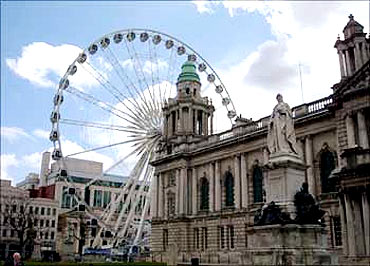
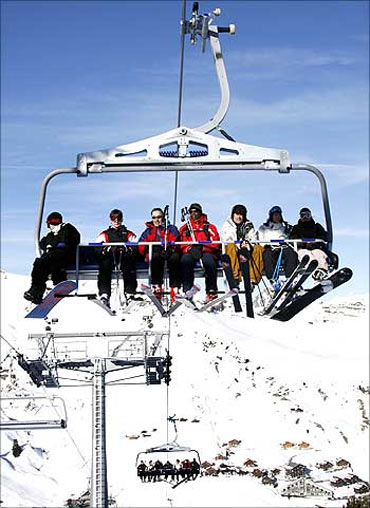
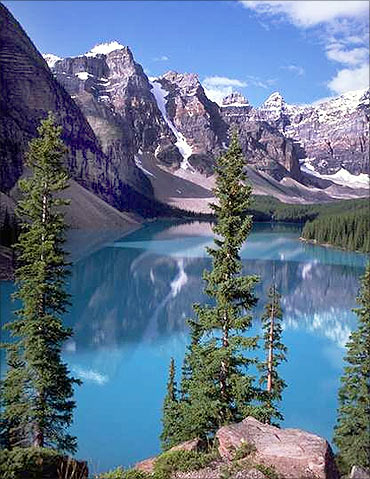
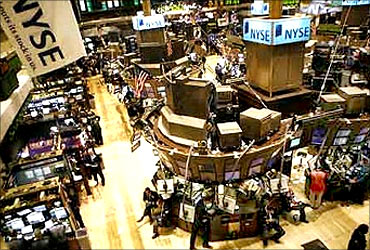
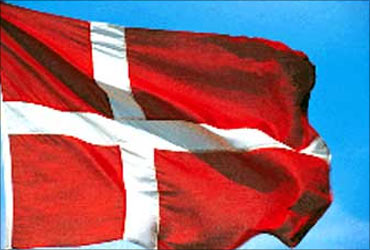
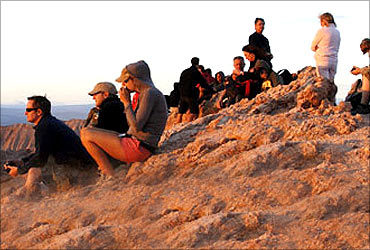
article